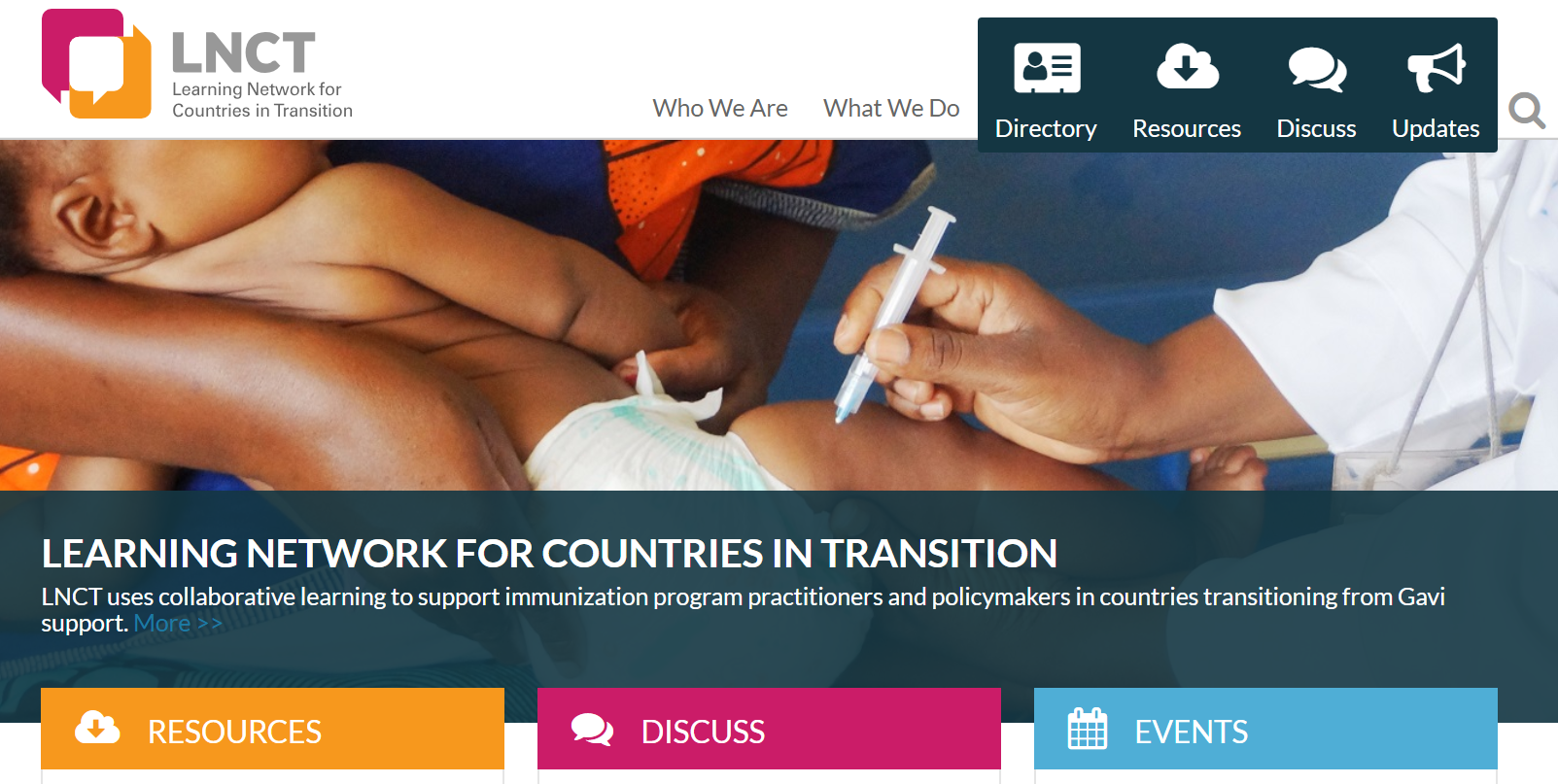[vc_row][vc_column width=”1/2″][vc_column_text]
Introduction and Overview
According to a new Gavi strategy for 2016-2020 one of the strategic goals for Gavi is to assure that EPI programs are sustainable in a long-term, especially within the group of countries transitioning out of Gavi financial support during the next five-year period. A large number of countries receiving support from Gavi, are transitioning or expected to transition out of support in the next few years.[/vc_column_text][/vc_column][vc_column width=”1/2″][vc_column_text]
Visit the project website
 [/vc_column_text][/vc_column][/vc_row][vc_row][vc_column width=”1/1″][vc_column_text]As transition is a new challenge middle-income countries are faced, it is crucial to capture experiences of countries go through the transition process and utilize country-to-country peer learning to address common challenges in immunization financing and programming. For this purposes a new initiative, the Learning Network for Countries in Transition was launched in May 2017. Results for Development (R4D) is leading network coordination and technical facilitation, drawing on partners and experts as needed.
[/vc_column_text][/vc_column][/vc_row][vc_row][vc_column width=”1/1″][vc_column_text]As transition is a new challenge middle-income countries are faced, it is crucial to capture experiences of countries go through the transition process and utilize country-to-country peer learning to address common challenges in immunization financing and programming. For this purposes a new initiative, the Learning Network for Countries in Transition was launched in May 2017. Results for Development (R4D) is leading network coordination and technical facilitation, drawing on partners and experts as needed.
Specific objectives of the project are following:
- Facilitate knowledge exchange on technical topics;
- Build community and sustain the collaborative process;
- Co-develop clear and agreed output(s) related to priority technical topics;
- Support LNCT country core groups;
- Help with broader dissemination of LNCT messages, approaches, and lessons.
Organizations Involved in the Research
Project is implemented by Results for Development Institute, Inc. “R4D” in partnership with Learning Network for Countries in Transition, middle-income countries in transition from GAVI support.
The project is funded by Bill&Melinda Gates Foundation.
Expected Results
CIF will support R4D in conducting scoping literature review and interviews with partner organizations and country stakeholders to a) better understand current country processes, b) identify other country experiences regionally/ globally that would provide good learning opportunities; c) explore existing approaches, tools, and resources on identified technical topics; d) refine identified topics through understanding of country demand, experiences, and gaps in knowledge.[/vc_column_text][/vc_column][/vc_row][vc_row][vc_column width=”1/1″][/vc_column][/vc_row]